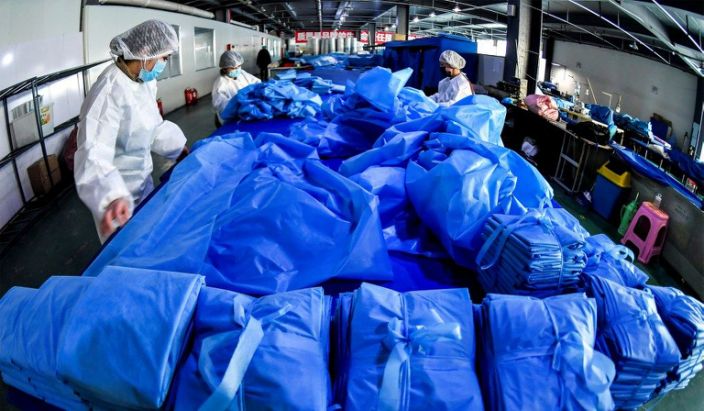Big companies in the US are reported to consider lobbying congress related to the import of goods that are made with forced labor. Congress has planned to approve the bill only in the near future. Some companies included are not strange names; they are Apple, Coca-Cola, and Nike.
The issue of forced labor has blown since some time ago. The action is said to be done by the Chinese government in the area of Xinjiang, China. Xinjiang is a home for the minority ethnic of Uyghur that is reported to be tortured by the government. Although the Chinese government has denied the issues several times, some reports said that the condition in Xinjiang is getting worse. It lets many activists press the Chinese government to stop their actions.
In the US, the bill has been approved by congress in September with votes of 406: 3. Currently, the bill is in the process in the US senates. If it is successfully approved, it means that the US government will officially limit and even prohibit completely imports of the goods dealing with the forced labor in China.
The bill is indeed supported by the US government from both parties; Republican and Democrat. However, it is reasonable if many businesses and companies cannot accept it that easily. Many US businesses depend on the companies along with laborers from China particularly in terms of components and spare parts. Meanwhile, some distribution activities must also pass through China before entering the US.
Additionally, China is one of the big bases of customers for many big companies like Apple, Nike, and Coca Cola. The number of customers in the country is also getting bigger aside from the fact that Chinese people are the biggest population in the world. Based on a report from Apple, the company representative even said that the customers from China have spent around $8 billion to buy its product. It just makes China the third biggest country for Apple’s market after the US and Europe.
Apple Emphasizes It Fights against the Forced Labor
It can be simply concluded that the main reason why those companies attempt to weaken the bill is because of the decrease in their profits. Although they are not denying the claim, Apple emphasizes that there are some points in the bill that are considered disadvantageous for Apple. The representative of the technology company also stated that they surely hate forced labor while mentioning that Apple can support the bill as long as the points are removed.
Apple elaborates evidence that shows their disagreement with the forced labor. In more than a decade, the company has released reports that included data on how they put effort to stop the forced labor. Some types of forced labor they report and stop are related to the long working hours for employees and their fights against the children labor. This year, Apple also describes how they provide protection tools for their employees to support them in the middle of the pandemic.
The attempts of Apple to fight against forced labor are not only for the company itself. Apple claims that it has asked suppliers to bring fair working hours to the employees as well as provide workplaces with high safety and free from discriminations.
The same rebuttal is also said by Nike. The company said to CNBC that it doesn’t lobby for the change of the bill at all. So far, they always prioritize using constructive discussions about human rights in congress. The company also said that it doesn’t take products from the Uighur Autonomy Area in Xinjiang. Even the suppliers of the company also take the materials from other places. The statement is agreed by Coca Cola who said about the same thing.
Criticism from Activists
But no matter how much the effort has been done by Apple to show its empathy toward the forced labor, activists cannot believe it that easily. Badiucao, one of the activists and a well-known Chinese political cartoonist talked to CNBC via phone from Australia. He has used around 74,000 followers on Twitter to launch a series of satire pictures with Nike, Apple, and Coca Cola as the target related to their attempts to weaken the bill.
He said that it is very disappointing to see many big companies try to block the bill about employment fairness. Badiucao also added that what they have done is not right at all. In the end, customers will watch what the companies do and the final decisions are in the customers’ hands, whether they still want to use those big companies’ products or not.

